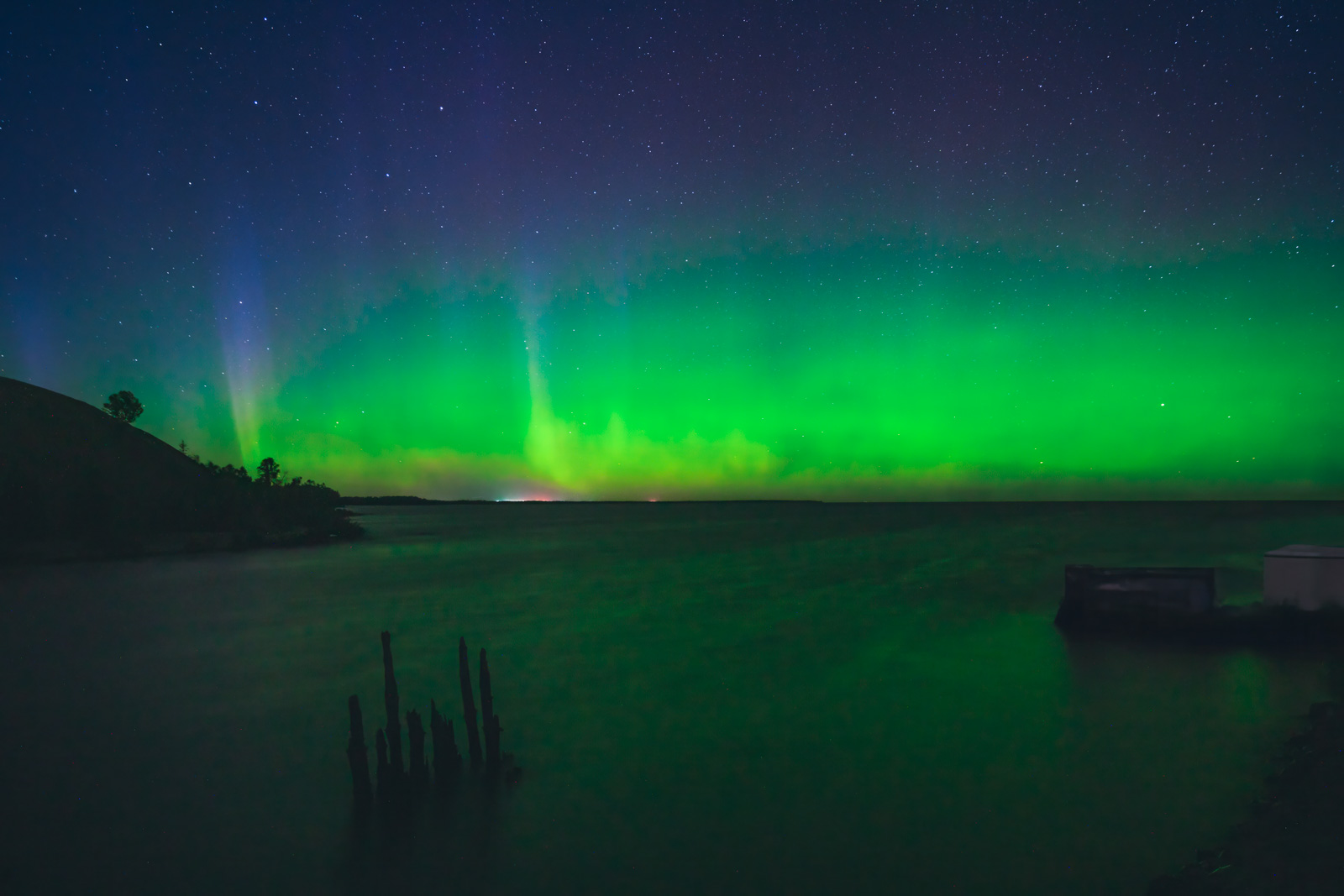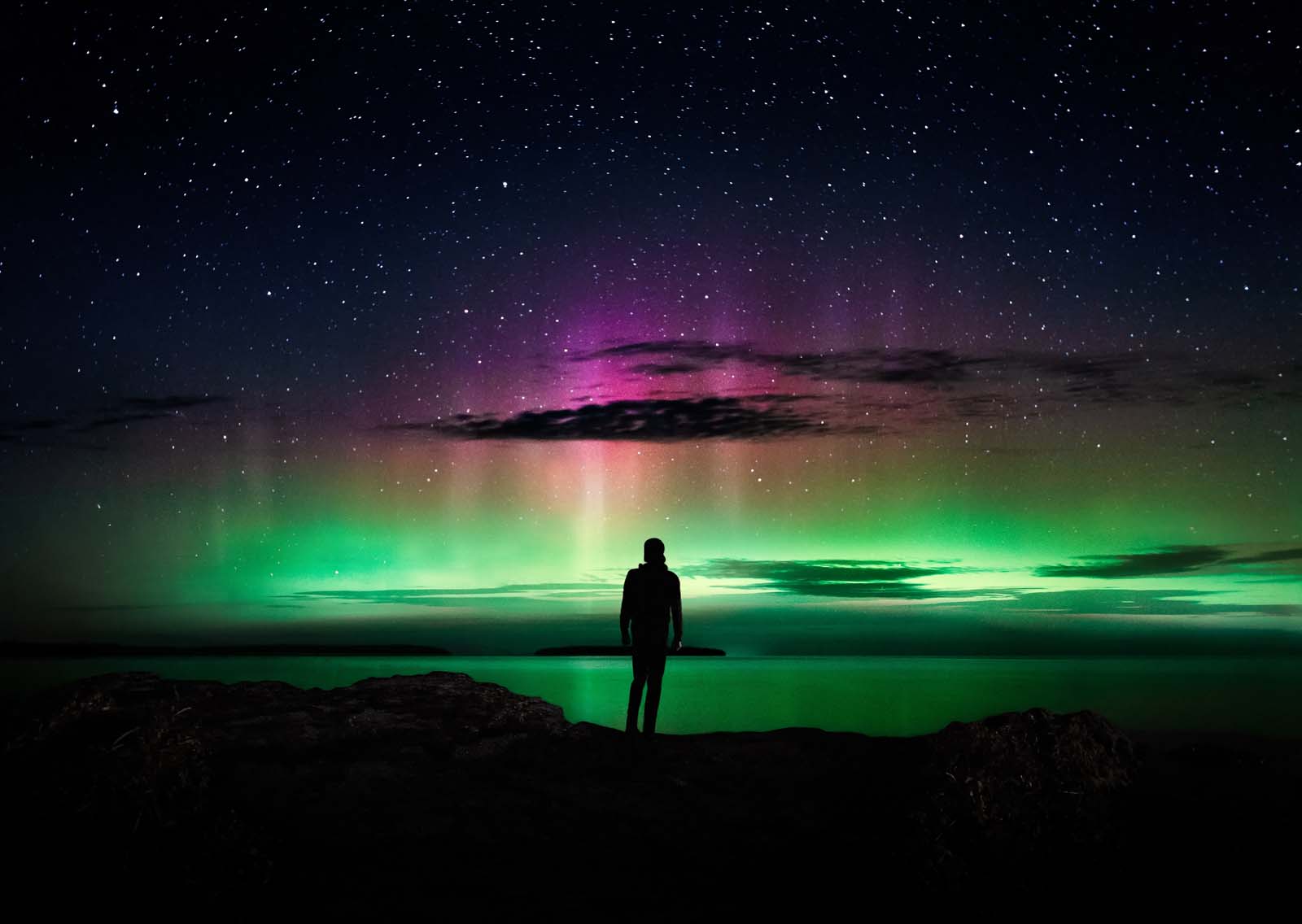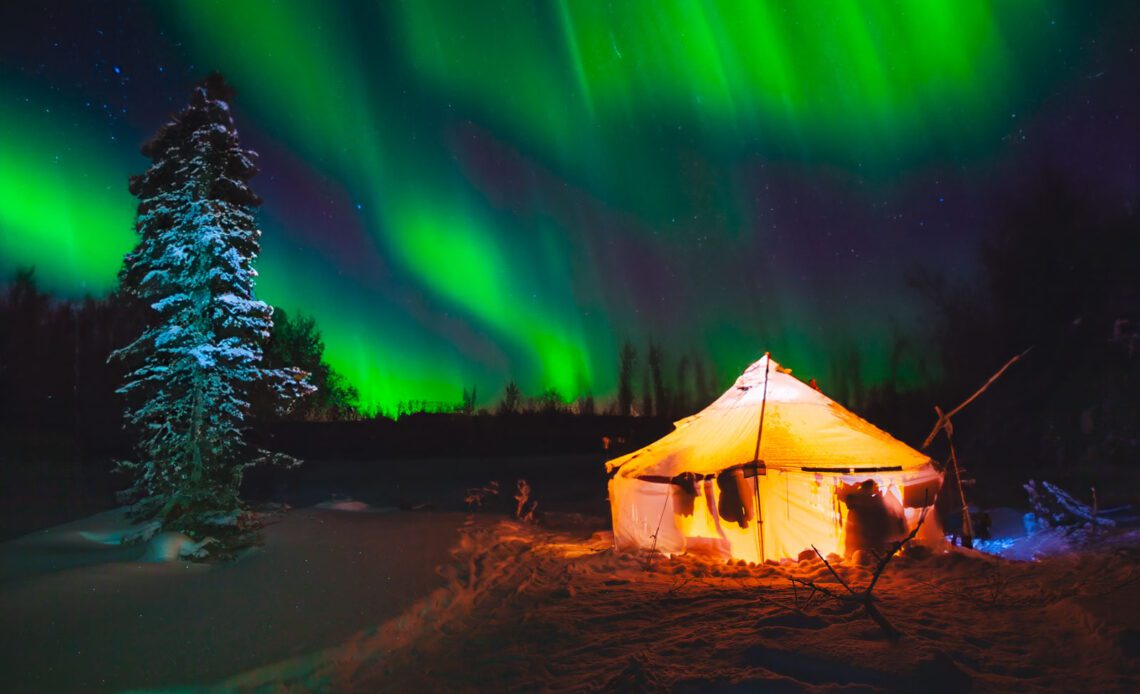If witnessing or photographing the breathtaking Northern Lights has always been on your bucket list, then look no further than the Northern Lights in Ontario, Canada. With its numerous dark sky preserves and hidden gems, there’s no better place to experience this mesmerizing natural wonder. We live in Ontario and have the pleasure of exploring the best locations and times to view the Aurora Borealis. We want to share our valuable tips to make your Northern Lights adventure unforgettable.
Discovering the Northern Lights in Ontario
We have been lucky enough to see the Northern Lights in a lot of places in the world. This includes Iceland, Greenland, and many spots in Canada. But did you know that Ontario is home to some of the most incredible spots for aurora viewing? You don’t even have to travel far from Toronto or Ottawa to get a glimpse of the Northern Lights. Many Ontario Parks, including national parks, provincial parks, and conservation areas, offer fantastic opportunities to witness the aurora borealis dancing across the sky.
If you are just looking for a quick list here are some popular locations for Northern Lights viewing:
With so many amazing places to choose from, you’re bound to find the perfect spot for your Northern Lights viewing adventure.
What are the Northern Lights?

The Northern Lights, also known as the aurora borealis, are a natural phenomenon caused by electrically charged particles from the sun interacting with the Earth’s atmosphere. This mesmerizing light show typically occurs when there’s increased solar activity, such as solar flares.
The aurora borealis can display vibrant shades of green, blue, and purple across the night sky, creating a breathtaking spectacle that draws countless visitors to Ontario each year.
Best Times to Experience the Aurora Borealis in Ontario

Observing the Northern Lights in all their splendor hinges largely on timing. Ideally, in Ontario, you should aim to catch the aurora borealis between 11 p.m. and 3 a.m. The months from November to March offer the best opportunities for viewing, as the sun sets earlier and the nights are longer. Additionally, clear and cloud-free skies during the colder months in Canada make it easier to spot the Northern Lights.
Keeping tabs on the local weather forecast and aurora predictions is also beneficial. Cloud cover, precipitation, moon phase, and the aurora forecast can all impact your chances of witnessing the Northern Lights. With a little…
Click Here to Read the Full Original Article at The Planet D: Adventure Travel Blog…
